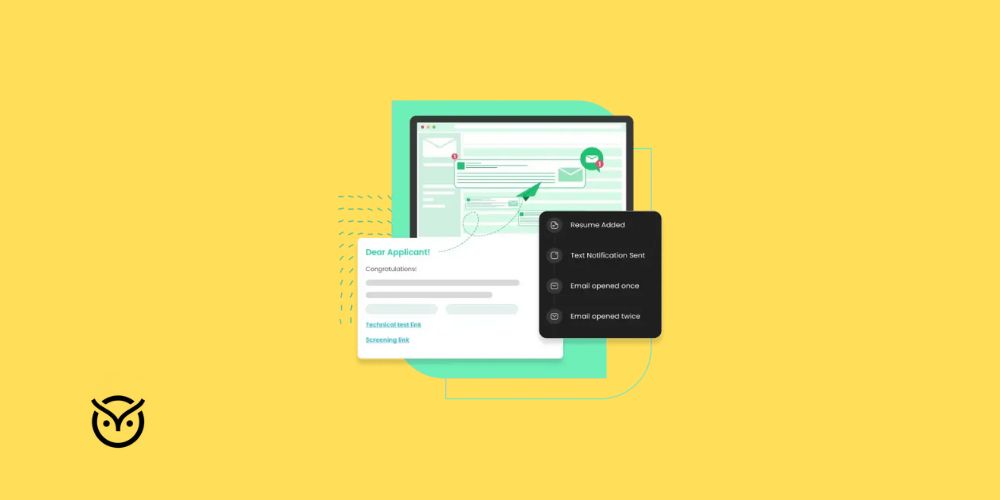
TL;DR
- Hardest coworker question is about handling a difficult coworker
- Tests emotional intelligence, teamwork, and conflict resolution
- Use STAR method to answer clearly and constructively
- Focus on positive actions and outcomes
- Avoid blaming, negativity, or overemphasizing the conflict
When preparing for an interview, one question often stands out as especially challenging: “Tell me about a time you had a difficult coworker and how you handled it.” So, what is the most challenging coworker interview question? It’s this one because it tests your ability to handle conflict, work well with others, and stay professional under pressure.
Employers ask these questions to see how you manage real workplace challenges. They want to understand your emotional intelligence, conflict resolution skills, and how you maintain strong teamwork and collaboration even in tough situations. Keeping this in mind, this blog will break down why employers ask these questions and how you can answer them confidently.
Truth or Myth: Interview Edition
Click on each card to reveal if it’s a truth or a myth — and why it matters in interviews!
Why Do Employers Ask Questions About Coworkers?

Questions about coworkers and workplace conflict are common in interviews because employers want to understand how you handle real-world interpersonal challenges. Working well with others is essential in almost every role, and conflicts are inevitable. These questions help reveal your behavioral skills, such as handling workplace conflict, conflict resolution, and managing difficult work relationships. According to a study by CPP Inc., 85% of employees deal with conflict at work, and 29% experience it constantly, which is why employers dig into your interpersonal handling skills during interviews.
By asking about your experiences with coworkers, interviewers can gauge your emotional intelligence in interviews—how well you stay calm, communicate clearly, and find solutions when problems arise. They also want to see if you can maintain teamwork and collaboration skills even when dealing with challenging colleagues.
🧠 Decode the Interviewer’s Real Question
Can you guess what they *really* want to know? Click to find out!
“Tell me about a time you had a difficult coworker.”
“Have you ever disagreed with a manager?”
“How do you handle feedback?”
How to Answer the “Conflict with Coworker” Interview Question

Select a Relevant Example
Avoid discussing personal grievances or overly sensitive topics. Instead, focus on professional challenges that highlight your problem-solving abilities.
Choose a situation that:
- Involves a genuine conflict, not a trivial disagreement.
- Demonstrates your role in resolving the issue.
- Had a positive outcome or led to personal growth
Structure Your Response Using the STAR Method
The STAR method ensures a comprehensive and concise response.
Organize your answer to provide clarity and focus:
- Situation: Describe the context and the conflict.
- Task: Explain your responsibility in the situation.
- Action: Detail the steps you took to address the conflict.
- Result: Share the outcome and what you learned.
Emphasize Positive Actions and Outcomes
Showing these qualities really speaks to your ability to stay mature, professional, and focused on building positive working relationships.
- Communication: It begins with an authentic and respectful conversation, whereby both parties feel acknowledged.
- Collaboration: It’s working together to arrive at a resolution for all parties involved, not just fulfilling your agenda.
- Adaptation: At times, you may need to change how you approach the situation with the other person.
- Reflection: A moment afterwards to reflect on what happened and how to address things differently next time.
Maintain a Professional Tone
Instead, focus on the actions that you took and how positive the outcome was.
Avoid:
- Speaking negatively about your coworker.
- Blaming others for the conflict.
- Focusing solely on the problem without discussing the solution.
Sample Answer
While working as the project coordinator, I had an opportunity to work with someone who had a different perspective on timelines. At that point, we were struggling to understand who was fulfilling what task, prolonging things. I could see the difficulties our differences caused for the team, so I set up a one-on-one meeting to talk about our working styles. After an open dialogue, we were able to address the conflict in our working styles and agree to use a more structured approach for our project timelines. As a result, our partnership improved considerably, we met deadlines with much more frequency, and I recognized the value of clear expectations early in a project.
🧩 Can You Reconstruct a Great STAR Answer?
Drag and drop the pieces into the correct STAR order (Situation → Task → Action → Result)
What Not to Say When Asked About a Difficult Coworker

Avoid Badmouthing or Blaming the Coworker
Criticizing or accusing a coworker reflects poorly on both you and your level of professionalism and may raise concerns about your ability to work collaboratively.
Example of What to Avoid: My coworker was always late and disorganized, which caused a lot of problems for the team.
Why It’s Problematic: This example puts a lot of focus on the negative attributes of the coworker, and is not very reflective of your relational skills at all.
Better Approach: I noticed that our team was facing challenges due to some inconsistencies in our workflow. I initiated a discussion to understand the root causes and worked with the team to implement more structured processes.
Don’t Claim You’ve Never Had a Difficult Coworker
Stating that you’ve never encountered a difficult coworker can come across as unrealistic or evasive.
Example of What to Avoid: I’ve always gotten along with everyone; I’ve never had any issues with coworkers.
Why It’s Problematic: This response may suggest a lack of self-awareness or experience in handling workplace conflicts.
Better Approach: Although I work to foster good relationships, I recognize that conflicts may occur. In these circumstances, I emphasize open dialogue and teamwork to address any concerns positively.
Avoid Overly Emotional or Defensive Responses
Getting defensive or overly emotional can indicate that you may not handle conflict calmly and professionally.
Example of What to Avoid: I got so upset with my coworker that I ended up calling them out in front of the whole team.
Why It’s Problematic: The response underscores ineffective conflict management and a lack of control over emotional response.
Better Approach: When I encountered a difference of opinion with a co-worker, I opted to handle it discreetly and courteously. We exchanged our viewpoints and reached an agreement that helped the project.
Don’t Focus Solely on the Problem Without Offering a Solution
Merely describing the issue without discussing how you addressed it can make you seem passive or ineffective.
Example of What to Avoid:
My coworker and I couldn’t agree on anything, and it made working together difficult.
Why It’s Problematic: This kind of answer makes it seem like you just sat back and let the problem be, instead of taking charge to fix it.
Better Approach: Even though we didn’t always see eye to eye, I suggested we get together and clearly align our goals and expectations. Taking that initiative helped us work better as a team and get things done on time.
Avoid Overemphasizing the Conflict
Dwelling too much on the conflict can shift the focus away from your qualifications and suitability for the role.
Example of What to Avoid: The conflict with my coworker was so intense that it almost led to me leaving the company.
Why It’s Problematic: This response may raise concerns about your ability to handle stress or work under pressure.
Better Approach: We did have quite a few challenges, but I concentrated on my work and then proceeded to find solutions. I feel this helped me develop my conflict management and reminded me of my value for group work.
Red Flag or Green Light?
Click the option that best describes the candidate’s behavior. Let’s test your judgment!
“I’ve never had any issues with coworkers.”
“I called out my coworker in front of everyone because I was frustrated.”
“I scheduled a one-on-one to understand their work style and we collaborated better.”
“We couldn’t get along, so I just did the work myself.”
Conclusion
While answering interview questions on conflict at work might seem daunting, it also presents an opportunity for you to demonstrate your emotional intelligence, communication skills, and maturity. What is the most difficult coworker question? The one that asks how you dealt with a difficult coworker.
And with the right attitude and preparation, this is a chance to show how you can problem-solve, maintain professionalism in difficult situations, and understand the importance of working together. Remember: be honest, stay calm, and reflect on your learning and development through the conflict.




